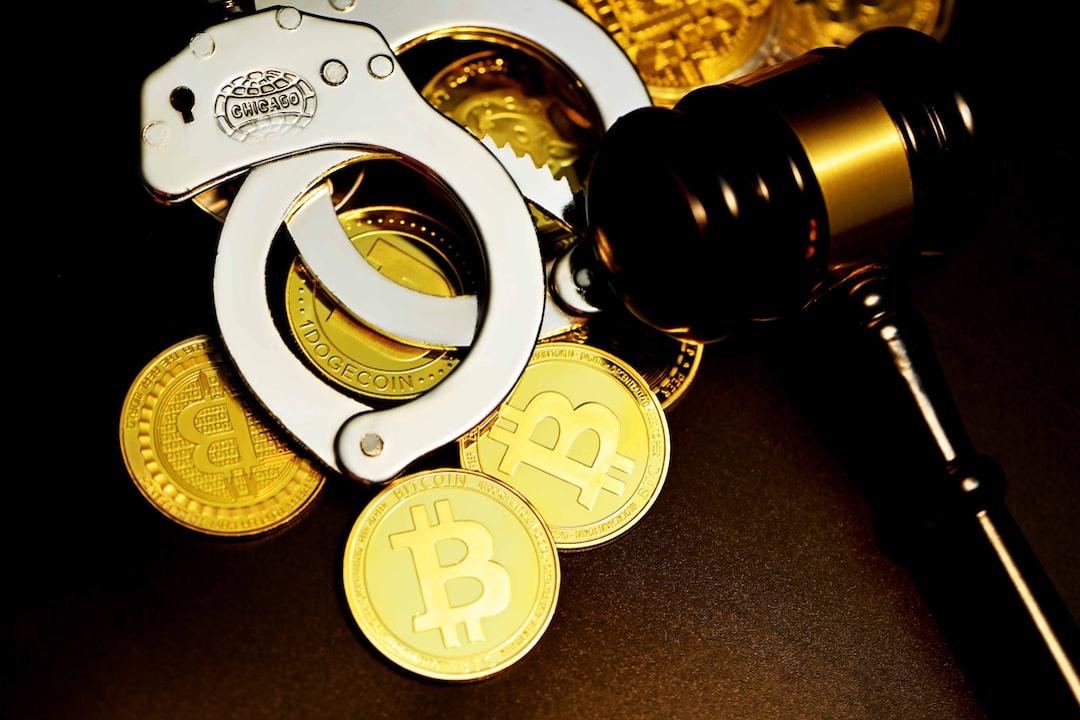Cat Lawyer

Experience in the cryptocurrency industry: 5 years
– Director of the Taiwan Virtual Asset Anti-Money Laundering Association
– Expert representative at the public hearing on the necessity of special legislation for virtual assets
Cat Lawyer specializes in handling litigation cases related to cryptocurrency fraud, money laundering, and illegal fundraising in the banking industry. Since 2019, she has been handling several lawsuits related to the closure of cryptocurrency exchanges. She has also been invited to be a lecturer in courses on emerging technologies such as cryptocurrency, AI, and e-commerce.
How did you enter the cryptocurrency industry?
When it comes to the cryptocurrency industry, social media platforms are filled with various miraculous trading strategies, making it seem like anyone can get rich overnight. These “expert” traders who can predict project trends accurately and shout “get on board” seem to be the only face of the cryptocurrency industry, which intimidates many outsiders, leading them to believe that this is an unattainable and unreachable world.
However, are these “guru-level” individuals really the whole picture of the cryptocurrency industry?
In fact, beneath these glamorous appearances, the cryptocurrency industry consists of ordinary professionals just like “Cat Lawyer.” They are just like you and me, diligently working in their jobs, but in addition to their regular work, they choose to enter the emerging field of cryptocurrency to create additional passive income through investment and financial management.
They may not have astonishing trading strategies or extraordinary market intuition, but with rational analysis, cautious investment, and risk management, they can also find their place in the cryptocurrency industry.
When asked how she entered the cryptocurrency industry, Cat Lawyer smiled and said that it all started from her legal profession. “During the initial coin offering (ICO) boom, many clients came to seek legal advice, and in order to provide professional advice, I began to delve into the study of cryptocurrencies. Unfortunately, I didn’t start investing until one or two years later.”
Unlike many others who entered through investment, Cat Lawyer came into contact with the cryptocurrency industry due to her work, allowing her to have a more rational observation of this field. As a professional lawyer, she examines the operational logic, potential risks, and regulatory issues behind cryptocurrencies with legal rigor.
What is the most memorable experience you’ve had in the cryptocurrency industry?
As a cryptocurrency investor, Cat Lawyer admitted that the collapse of FTX exchange had a significant impact on her. “At that time, FTX was booming and was hailed as the second largest exchange in the world. Everyone had great confidence in it, including many ordinary traders. So when it suddenly collapsed, many people’s funds were frozen, including mine.”
This incident made her deeply realize that even seemingly stable large exchanges are not immune to the risk of closure. “This taught me a lesson that no matter how large or reputable an exchange is, asset allocation is always the most important.”
Cat Lawyer emphasizes the importance of risk diversification and not putting all eggs in one basket when investing in cryptocurrencies.
Due to her firsthand experience of the prosperity and dangers of the cryptocurrency industry, Cat Lawyer decided to contribute more positive influence to this emerging field. In her daily legal consultations, she has encountered numerous fraud victims who passionately complain about their losses and the despair of losing their lifelong savings. Therefore, in addition to providing professional legal services, Cat Lawyer is also involved in promoting anti-fraud awareness.
Apart from exchange risks, news of well-known exchanges closing down or being investigated constantly circulates in the cryptocurrency industry, causing investors to be anxious. Cat Lawyer reminds investors to be vigilant, as these exchanges may create a glamorous image through sponsoring large events or celebrity endorsements, but there may be illegal activities or risk control issues behind the scenes. Therefore, investors must keep their eyes wide open and evaluate carefully.
What mobile apps do you have installed?

Exchanges: ACE, PaiNet, BingX, Binance, Bybit, Crypto.com, Bitfinex, BitTrust, CoinList (public ICO platform), Gate.io, AAX, OKEx
NFT: OpenSea
Sources of information: X, Telegram, Coinmarketcap
What is your current investment strategy?
After experiencing the baptism of the market, Cat Lawyer’s current investment strategy leans towards conservatism. “At the beginning, I also explored many small coins, but due to busy work, I didn’t have much time to track information and found that small coins require quick entry and exit, and I often missed the opportunity.”
Therefore, Cat Lawyer’s investment portfolio mainly consists of mainstream currencies with large market capitalization, high liquidity, and relatively mature development, such as Bitcoin (BTC) and Ethereum (ETH). She believes that these currencies have withstood the test of time, are relatively resistant to price drops, and have a clearer future development. Although she occasionally explores promising small coins, she strictly limits their proportion in the overall portfolio to avoid excessive exposure.
Based on her confidence in the long-term value of mainstream currencies, Cat Lawyer adopts a long-term holding strategy. She does not seek the excitement of short-term trading or frequently buy and sell due to short-term market fluctuations. This strategy helps her avoid emotional decision-making and reduces trading costs and risks.
In addition, the lesson from the FTX incident made her deeply aware of the importance of exchange risks. Therefore, she chooses to diversify her assets among different exchanges, including domestic platforms that are legal and compliant, to reduce the risk of a single exchange closing down or being hacked. She also emphasizes the importance of choosing secure exchanges and further diversifying among multiple exchanges to further reduce risks.
What should beginners in the cryptocurrency industry pay attention to?
The cryptocurrency industry, a field full of innovation and opportunities, has attracted the attention of countless people and has also become a breeding ground for fraudsters. From fake exchanges and investment projects to gentle traps on dating apps, the methods of fraud are endless and constantly evolving.
Cat Lawyer helplessly said that fraud problems in Taiwan are severe. She receives 3 to 5 legal consultations about cryptocurrency fraud almost every day. In December last year, there was even a shocking amount of fraud reaching NT$400 million in a single day.
“The current fraud methods are ever-changing and unpredictable,” Cat Lawyer said. According to her observations, the most common fraud method in Taiwan is “fake exchanges.”
Fraud groups set up fake websites that are extremely similar to well-known exchanges to deceive investors into depositing money. Initially, they may allow investors to withdraw a small amount to gain trust, but once a large amount of money is invested, they will refuse to allow withdrawals for various reasons, such as demanding high collateral or tax payments, or claiming that the account is frozen due to money laundering suspicions.
Cat Lawyer specifically warns that legitimate exchanges clearly state the fee rates on their websites. If you are informed about the need to pay 10% to 30% in taxes only during the withdrawal process, it is almost certain that it is a fraud.
In addition, if you come across investment opportunities that claim to “guarantee profits,” offer “high returns,” or request “loan investments,” you should be cautious as these are likely to be traps.
As cryptocurrency regulations gradually become clear, Cat Lawyer suggests referring directly to the list of “Registered VASPs for Anti-Money Laundering Measures” posted on the Financial Supervisory Commission’s website.
“These exchanges on the list represent that they have legally established themselves in Taiwan and completed relevant registrations. For investors who are not familiar with the cryptocurrency industry, choosing these exchanges at the beginning will provide more peace of mind,” she said.
In addition to fake exchanges, romance scams are also common in the cryptocurrency industry. Fraud groups establish emotional relationships with victims through dating apps or social media platforms and then deceive them into investing in cryptocurrencies using various reasons.
“Many victims even have video calls with fraudsters and believe that they are genuine just by seeing their appearance. But now, with advanced AI technology, video footage can also be fake,” Cat Lawyer said.
What should you do if you are unfortunately scammed?
The cryptocurrency industry offers many opportunities to make money, but it also comes with great risks, especially the prevalence of scams. Based on her own and her clients’ real experiences, Cat Lawyer provides some suggestions.
Suggestion 1: Immediately stop investing more money
This is the first step in cutting losses and the most important step. When you realize that you may have been scammed, you should decisively refuse to invest more money, regardless of the reasons the other party gives, such as paying taxes, collateral, or account unfreezing fees.
Cat Lawyer emphasizes, “Every dollar you can save from being scammed is a dollar saved!” Many victims, after discovering they have been scammed, still hold onto a glimmer of hope and continue to invest more money to “recover their losses.” The result is often falling deeper into the trap and suffering even greater losses.
Suggestion 2: Retain all relevant evidence
Collecting and properly preserving all evidence related to the fraud is crucial for seeking legal assistance in the future.
– Conversation records with the fraud group: This includes all chat records from communication platforms (such as LINE, Telegram, WeChat, etc.) and email correspondence. Even if the content of the conversation seems irrelevant, it may become crucial evidence.
– Transaction records: This includes all deposit and withdrawal records, such as bank transfer details and cryptocurrency transaction records (including transaction time, amount, wallet addresses of the parties involved, etc.).
– Screenshots of fraudulent websites or platforms: It is important to screenshot and save all pages of fraudulent websites or platforms, especially those displaying investment amounts, returns, and withdrawal rules.
– Other relevant documents: For example, contracts, promotional materials, identification documents provided by the fraud group (even if they are forged). Any documents related to the fraud should be saved.
Cat Lawyer specifically reminds that some victims may delete conversation records with the fraud group due to shame or anger. This will greatly hinder any future legal claims. Therefore, it is essential to remain calm and preserve all evidence.
Suggestion 3: Seek professional legal assistance
Cryptocurrency fraud cases often involve complex legal issues and technical details. Therefore, it is recommended to consult a professional lawyer as soon as possible to assess the case and develop the next course of action.
Cat Lawyer mentioned that even if the fraud group goes unpunished, they ultimately need to receive funds through personal accounts. Therefore, even if it is not possible to directly recover the funds from the fraud group, there is a chance to legally hold the owners of these personal accounts responsible and demand compensation for the losses.
Suggestion 4: Report to the police
Although some people may think that reporting to the police is useless, it can actually provide the police with more information to organize and investigate, leading to the arrest of more members of the fraud group.
Lastly, Cat Lawyer’s most important advice to beginners in the cryptocurrency industry is, “Know your limits and manage your assets.” She emphasizes that investing in cryptocurrencies always carries risks, and there is no investment that guarantees profits without losses. Therefore, before investing, it is crucial to carefully assess one’s risk tolerance and not invest more than one can afford.
“The purpose of investment is to improve your life, not to put yourself under greater pressure,” Cat Lawyer said. “Even if an investment may increase 100 times in the future, it is not suitable for you if it keeps you awake at night.”
She also encourages investors to discuss their investment plans with family and friends, especially younger generations who can help older generations recognize fraud information. “Many elderly victims are reluctant to tell their children after being scammed, resulting in deeper and deeper losses. If family members can establish good communication channels, tragedies can be reduced.”

